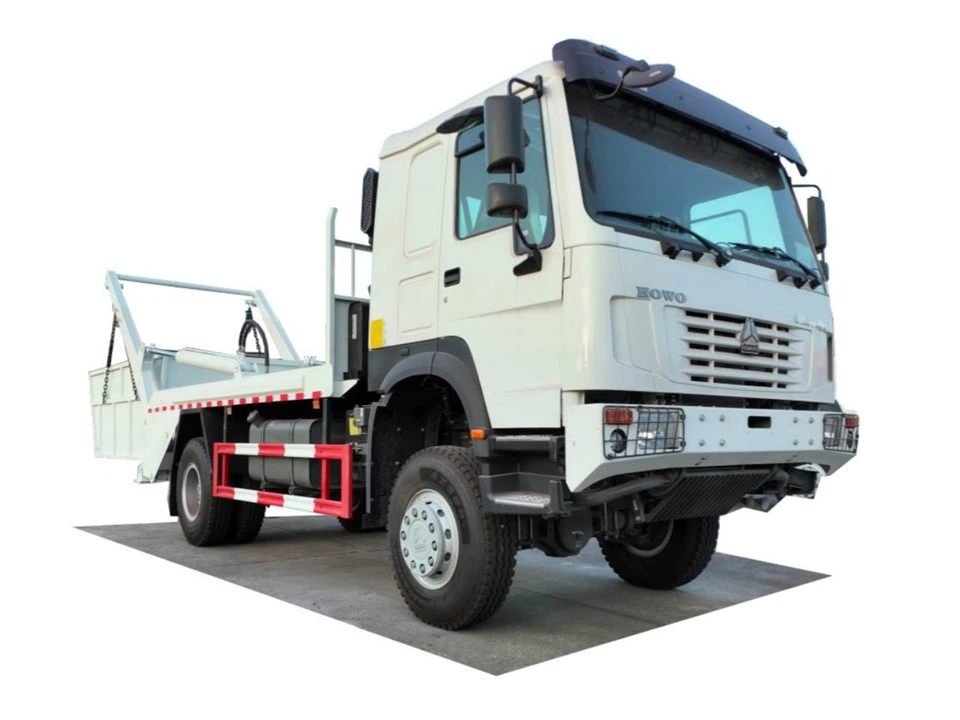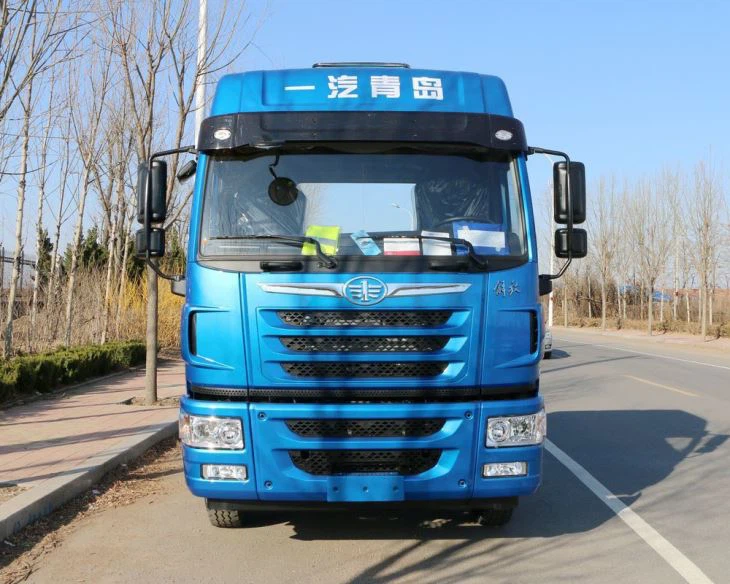The rise of electric vehicles (EVs) has taken the world by storm, and among the most significant developments is the advent of electric trucks, particularly from China. Electric Chinese trucks are set to change the logistics and transportation landscape, facilitating more sustainable solutions for freight movement. This article delves into the various aspects of electric Chinese trucks, including their benefits, key manufacturers, technological advancements, market trends, and much more.
Table of Contents
- Introduction
- Benefits of Electric Chinese Trucks
- Key Manufacturers of Electric Chinese Trucks
- Technological Advancements in Electric Trucks
- Current Market Trends in Electric Trucks
- Challenges Faced by Electric Truck Manufacturers
- Future Potential of Electric Chinese Trucks
- Practical Examples and Tips
- Frequently Asked Questions (FAQ)
Introduction
Electric trucks are gaining traction around the globe, primarily driven by environmental concerns and the push for sustainable transportation solutions. In China, a country known for its rapid technological advancements, electric trucks are leading this transformative charge. These trucks offer numerous advantages over their diesel counterparts, including lower operating costs, reduced emissions, and enhanced efficiency. With major investments in infrastructure and technology, Chinese manufacturers are poised to dominate the electric truck market.
Benefits of Electric Chinese Trucks
1. Reduced Emissions
One of the primary benefits of electric trucks is their zero tailpipe emissions. Transitioning to electric trucks significantly lowers greenhouse gas emissions, contributing to cleaner air and compliance with stringent environmental regulations.
2. Lower Operating Costs
Electric trucks typically have lower operating costs compared to traditional diesel trucks. This reduction is largely due to lower fuel costs and decreased maintenance expenses, given fewer moving parts in electric vehicles.
3. Noise Reduction
Electric trucks operate much more quietly than their diesel counterparts. This noise reduction is particularly beneficial for urban areas where noise pollution is a concern.
4. Government Incentives
Many governments around the world, including China, offer incentives for the purchase and operation of electric vehicles. These incentives can include tax breaks, grants, and rebates, making electric trucks more affordable.
5. Enhanced Performance
Electric trucks provide instant torque, which improves acceleration and overall driving performance. This characteristic is particularly advantageous for logistics operations requiring quick maneuvers.
Key Manufacturers of Electric Chinese Trucks
1. BYD (Build Your Dreams)
Founded in 1995, BYD has emerged as one of the largest electric vehicle manufacturers in the world. The company produces a range of electric trucks, including battery-electric heavy-duty trucks that cater to various logistics needs.
2. Foton Motor
Foton Motor, a subsidiary of Beijing Automotive Group, specializes in producing commercial vehicles. Their electric truck lineup includes the Foton Aumark electric truck, designed for urban deliveries.
3. SAIC Motor
SAIC Motor Corporation, one of China’s largest automotive manufacturers, has incorporated electric trucks into its product offerings. Their electric logistics vehicles aim to meet the growing demand in the commercial transport sector.
4. Dongfeng Motor Corporation
Dongfeng is another significant player in the Chinese electric truck market. This manufacturer focuses on creating electric models that emphasize reliability, efficiency, and adaptability for various industries.
5. Geely
Geely, widely known for its passenger vehicles, is also expanding its footprint in the commercial sector with electric trucks. Their innovative approaches include integrating smart technologies for improved fleet management.
Technological Advancements in Electric Trucks
1. Battery Technology
Recent advancements in lithium-ion battery technology have propelled the performance of electric trucks. Increased energy density, faster charging times, and longer lifespans are just a few benefits emerging from this technology evolution.
2. Autonomous Driving Features
Many electric Chinese trucks come equipped with autonomous driving capabilities. These features improve safety and efficiency in logistics and transportation operations by reducing human error.
3. Connectivity and IoT Integration
Many electric trucks offer advanced connectivity options, enabling fleet operators to monitor vehicle health, track routes, and optimize performance through Internet of Things (IoT) technologies.
4. Advanced Safety Systems
Electric trucks feature enhanced safety systems, including collision avoidance, lane-keeping assistance, and smart braking systems, ensuring higher safety standards on roads.
Current Market Trends in Electric Trucks
1. Increased Adoption in Urban Areas
With growing concerns over pollution and sustainability, electric trucks are increasingly being adopted in urban logistics. They minimize carbon footprints and comply with city regulations.
2. Focus on Fleet Electrification
Companies are focusing on fully electrifying their fleets as part of their sustainability goals. This trend is evident in major logistics firms making substantial investments in electric trucks.
3. Investment in Charging Infrastructure
To support the growing demand for electric trucks, investments in charging infrastructure are ramping up. Major cities and logistics hubs are developing extensive charging networks to facilitate quicker vehicle turnaround times.

4. Rising Fuel Prices
The ongoing fluctuations in diesel fuel prices are prompting logistics companies to consider electric trucks as a more stable and cost-efficient alternative for long-haul operations.
Challenges Faced by Electric Truck Manufacturers
1. High Initial Costs
While operating costs are lower, the initial purchase price of electric trucks can be significantly higher than that of traditional trucks, which may deter some companies from making the transition.
2. Limited Range
The driving range of electric trucks remains a concern for many logistics operators, especially for long-haul applications. Continuous improvements in battery technology are essential to overcome this challenge.
3. Charging Time
Charging times for electric trucks can be longer than conventional refueling times, which can lead to operational delays unless sufficient charging infrastructure is developed.
Future Potential of Electric Chinese Trucks
1. Global Expansion
With increasing environmental regulations globally, electric Chinese trucks have the potential to expand into international markets, especially in regions focusing on sustainability.
2. Innovations in Urban Logistics

Electric trucks are poised to play a crucial role in the growing trend of urban logistics solutions, such as electric delivery vans and last-mile delivery services.
3. Integration with Renewable Energy
As renewable energy sources like solar and wind energy become more prevalent, integrating them with electric truck infrastructure can further enhance sustainability efforts and reduce operating costs.
Practical Examples and Tips
1. Case Study: BYD’s Electric Delivery Trucks
BYD has made significant strides in delivering electric trucks for urban deliveries across cities. Their electric trucks have successfully integrated into various logistics fleets, providing real-time data and improving delivery efficiencies.
2. Tips for Transitioning to Electric Trucks
- Conduct a cost-benefit analysis before transitioning to electric trucks to understand initial expenses versus long-term savings.
- Evaluate the total operating range needed based on delivery routes to select the right electric truck model.
- Invest in employee training for operating and maintaining electric trucks efficiently.
- Consider partnering with charging station providers to ensure adequate charging infrastructure is in place.
Frequently Asked Questions (FAQ)
1. Are electric trucks suitable for long-haul transportation?
While electric trucks are increasingly being developed for long-haul use, their current range limitations may pose challenges. Continuous advancements in battery technology are expected to bridge this gap in the near future.

2. How much do electric Chinese trucks cost?
The cost of electric Chinese trucks can vary significantly based on the model, capacity, and specifications. Generally, they tend to have a higher initial purchase price compared to diesel trucks, but lower operating costs over time.
3. What incentives are available for purchasing electric trucks in China?
The Chinese government offers various incentives for electric vehicle purchases, including subsidies, tax breaks, and grants to encourage the adoption of electric trucks and reduce emissions.
4. How long does it take to charge an electric truck?
Charging times can vary based on the charging station’s capacity and the truck’s battery size. Fast chargers can reduce charging time to a couple of hours, while standard chargers may take longer.
5. What is the environmental impact of electric trucks compared to diesel trucks?
Electric trucks produce zero tailpipe emissions, significantly reducing greenhouse gases and pollutants in comparison to diesel trucks, which are known for their high emissions.
6. Will electric trucks require new infrastructure?
Yes, the widespread adoption of electric trucks will necessitate the development of new charging infrastructure to support them, particularly in logistics and urban settings.





